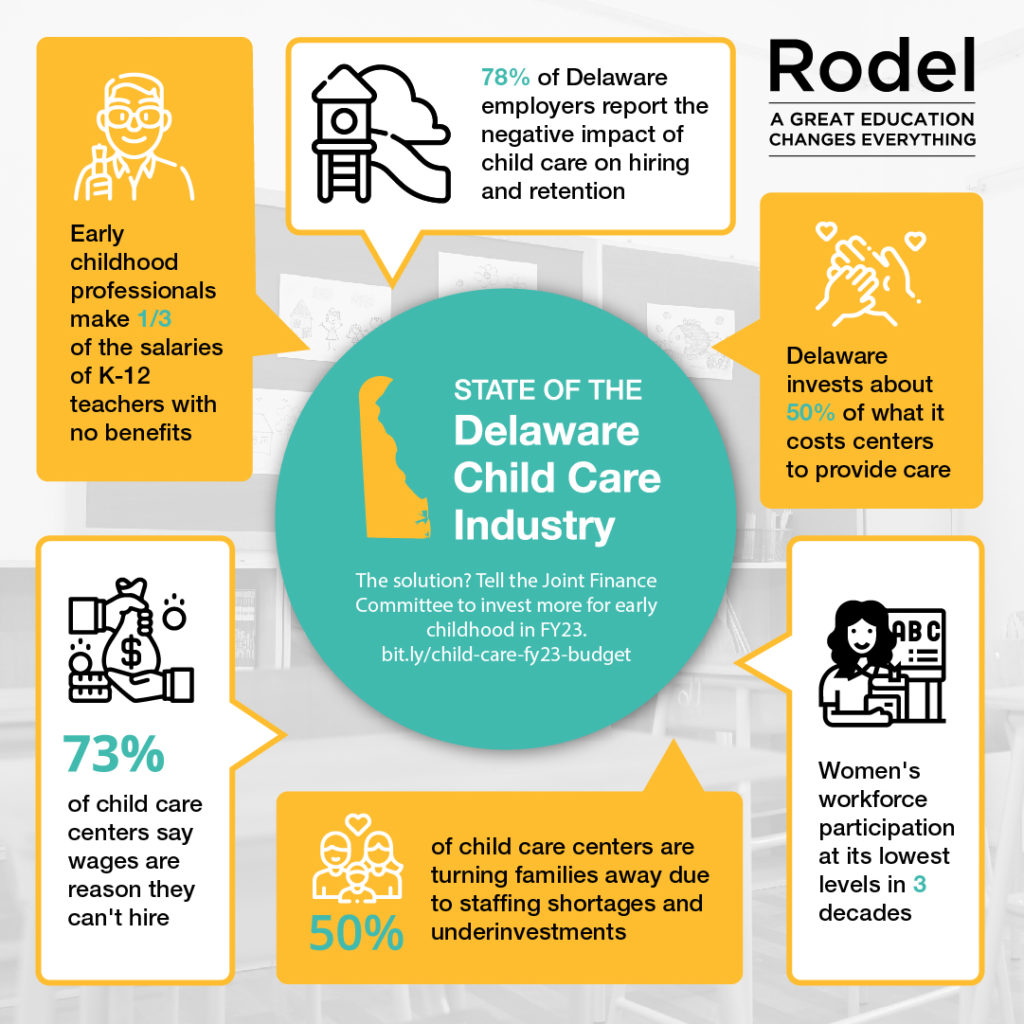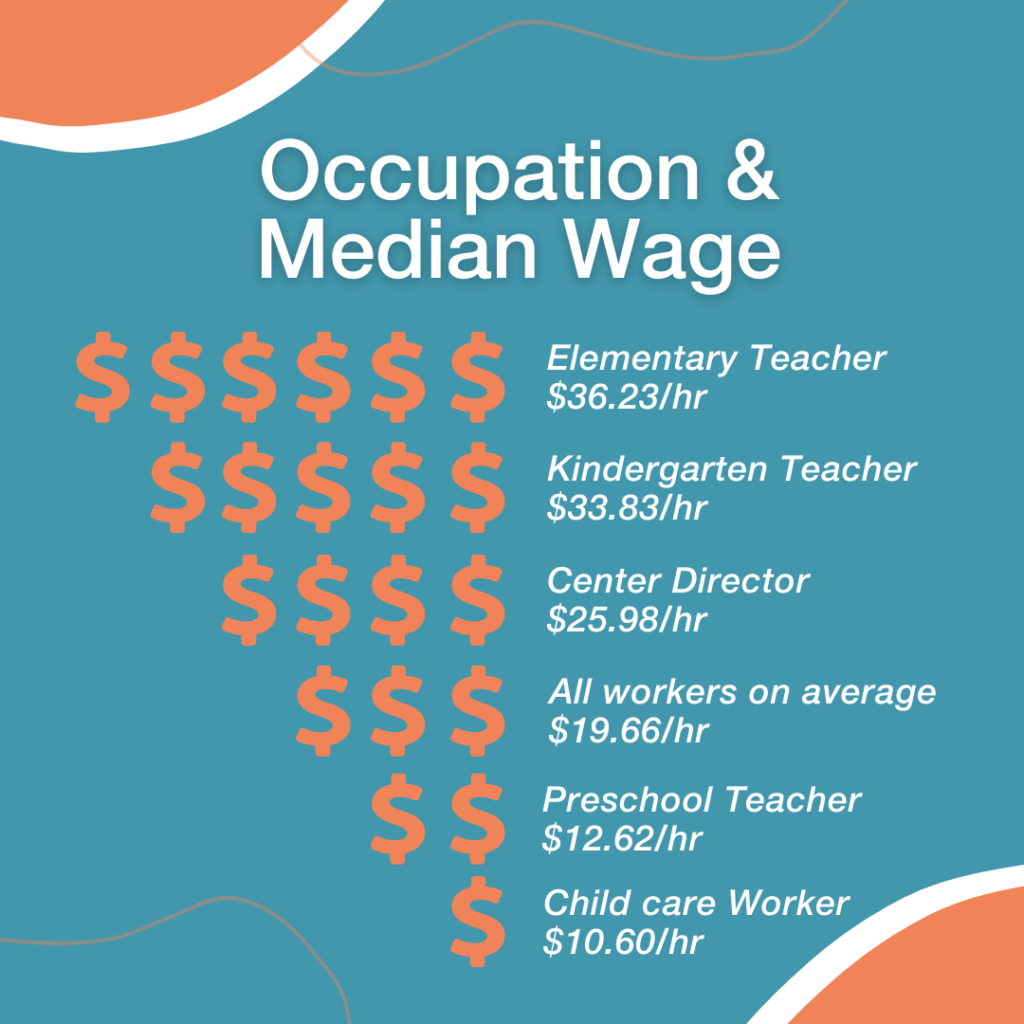
Philly native Melodie Miller knew since kindergarten that she wanted to be a teacher one day.
“I had a phenomenal kindergarten teacher named Miss Ross,” she says. “She really inspired me because when I was in kindergarten I couldn’t necessarily read yet, but she read ‘Chicka Chicka Boom Boom’ almost every day.”
Melodie eventually memorized the story and began reciting the story along with her kindergarten teacher.
“One day she said ‘Melodie, would you like to sit in the teacher chair and read ‘Chicka Chicka Boom Boom’ to the class?’ I couldn’t read, but I was confident because I knew what every page said. I sat in that teacher chair and all of my little friends were at my feet and I was reading and being animated and just I was like, ‘Oh, this is what I need to do. Forever.’”
At 14, Miller’s family moved to Middletown, where she attended St. Georges Vo-Tech High School and set down the path to becoming an educator.
She’s a true “Grow Your Own” story—taking part in St. Georges Teacher Academy Pathway, Wilmington University’s Yearlong Residency program, and finally returning to the area as a full-time teacher at Townsend Elementary School.
Where did your teacher journey really pick up steam?
I jumped on the Early Childhood program at St. Georges immediately and I got accepted. I worked really hard my freshman year because the Early Childhood program was really competitive and it was the only pathway I wanted to get into. My sophomore year, I learned a lot about educational pedagogy, theory and child development. My junior year was when I went through the whole preschool lab experience. Then in my senior year, I began working at my co-op job. I had no idea at the time that I was beginning my journey as part of Delaware’s “Grow Your Own “ initiative.
My co-op job was teaching at a preschool in Middletown for a few months until I graduated, and that’s when I went to Delaware Tech with the SEED Scholarship to get my associate degree in elementary education.
For my last two years of undergrad I was able to transfer to Wilmington University. During that time, my senior year at Wilmington University, the yearlong residency student teaching placement was new. I did the yearlong residency student teaching placement in a fifth grade classroom in Red Clay. Then, two months before I graduated I secured my dream job here at Townsend Elementary School teaching first grade. That’s my story.

How did the program set you up for whatever came next in life?
I had a phenomenal Early Childhood teacher, Nicole Bowe, from the St. Georges Early Childhood pathway. If it wasn’t for the pressure that she applied in making sure we understood theory, best practices and educational pedagogy, I would not be where I am today in my career. All of that was the foundation. Once I actually got to college, taking the child development classes was a breeze because of the strong educational foundation I received from the Early Childhood program at St. Georges.
Tell us about your experience with the yearlong residency training method?
With the yearlong residency, I think I was the second cohort in the state that was doing it through Wilmington University. The same way that St. Georges and the Teacher Academy prepared me for college, yearlong residency did the exact same thing.
With the yearlong residency, my entire senior year of college was being a full-time teacher. I started the school year setting up the classroom with my incredible mentor teacher, Stacie Zdrojewski. I planned with her. I attended all of the meetings that she attended in the school. I got to volunteer and do certain clubs and things like that.
Honestly, I was a first year teacher. I had my own set of responsibilities in the classroom. The kids didn’t see me as just a student teacher. I was a co-teacher in our classroom. She let me have my reign wherever I got ideas. It really was my first year teaching with expert guidance and oversight. And again, I had a phenomenal mentor-teacher. She just did a fabulous job preparing me for my real life.
My first year was still like a typical first year teaching. It was rough sometimes. I got the full-blown experience. But I cannot fathom not having done the yearlong student-teaching program. I could not fathom only having done a semester’s worth of student-teaching. I could not fathom not putting together the classroom in the beginning of the year, building relationships with the parents and students and doing it all in real life with an expert teacher, a master teacher by my side. I can’t imagine what kind of teacher would’ve been my actual first year teaching if I did not have that priceless experience.
Townsend Elementary ended up being your dream job—why is that?
When I moved here and I moved to Middletown in Appo, I realized that I didn’t really see many teachers who looked like me. And I remember how it felt to be in middle school here in Appo and not seeing many people of color. The lack of diversity caused me to question if teaching was something that was for me.
And so it was then that I realized, well, I want to go back to Appo and I want to be that teacher of color for all of my students. Whether I act as a mirror or a window for my students, I want them to see me as a possibility. Really, I just felt like I could be that person, that teacher for a little girl like me who didn’t necessarily see themselves represented in a position of authority. Since getting hired in Appo, there has been a significant increase in diversity and equity initiatives and I am excited to be part of the development of these practices in my district.

How important is leadership inside a school when it comes to developing new teachers?
A big piece of my educational experience so far is that I also got hired at a school with a phenomenal administrative team. That has also played a major role in just how much I’ve grown and continue to grow because I’ve been here my whole career at Townsend.
And because of the trust, support and leadership of my principal and assistant principal, Don Davis and Suzanne Street, I’ve been able to go to seminars and workshops and learn more about representation in education, which has led me to now pursuing a master’s degree at Eastern University in multicultural education. I should be graduating in May, so I’m very excited about that.
I don’t really know where I’m going next, but I know that I really want to make a difference, whether it’s just in this district or across the state, I just want to make a difference so that the state of education for all students is in a better condition once I reach the end of my career.



